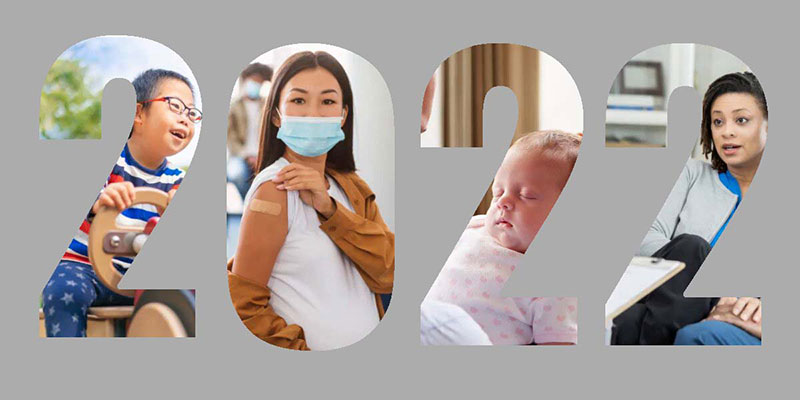
Last year, we celebrated NICHD’s 60th anniversary and commemorated six decades of research that helped to save lives, improve health and well-being, and reduce societal costs associated with illness and disability. We also looked ahead toward future research directions.
Research conducted at NICHD and at NICHD-funded institutions continues to bring us closer to fulfilling our vision of ensuring healthy pregnancies, healthy children, and healthy and optimal lives. Our Selected NICHD Research Advances of 2022 showcase summarizes notable findings from the past year that demonstrate how public investment in research drives scientific progress and benefits human health.
In 2022, NICHD continued to make significant contributions to addressing the ongoing challenges of the COVID-19 pandemic and its lasting effects on children, caregivers, and people with disabilities. NICHD-supported research has reinforced the importance of masks and helped communities to find ways to safely reopen schools, an important step particularly in areas where schools provide vital social supports. Furthermore, NICHD’s efforts to understand the effects of COVID-19 vaccination have provided indispensable guidance to parents, caregivers, and people of reproductive age.
Last year we moved closer to improving prevention and treatment of women’s health issues. For example, a mouse study illustrated the promise of a potential non-surgical treatment for endometriosis, a common gynecological condition that frequently causes debilitating pain and infertility. The year also brought good news about outcomes for infants born before 28 weeks of pregnancy, as I discussed in detail in an earlier blog post. One study reported improved survival rates for such extremely preterm infants born within the NICHD Neonatal Research Network, which includes 19 centers across the United States.
In addition to clinical and preclinical accomplishments, we made numerous strides in basic science, generating key knowledge about living systems and life processes that can later be translated into applications that benefit human health. For example, scientists funded in part by NICHD generated a synthetic mouse embryo that closely mirrors natural mouse embryos 8.5 days after fertilization, providing a model system to investigate factors affecting developmental health and disease.
I encourage everyone to read the complete showcase to learn more about these studies and other recent notable advances. In 2022, we made great progress in understanding intellectual and developmental disabilities, optimizing child and adolescent nutrition and health, protecting families from violence, addressing health disparities, ensuring that therapies for various health conditions are optimally implemented, and many other areas. I look forward to the publication of findings from several major clinical trials in 2023 that will significantly affect the medical management of the populations we serve.
 BACK TO TOP
BACK TO TOP